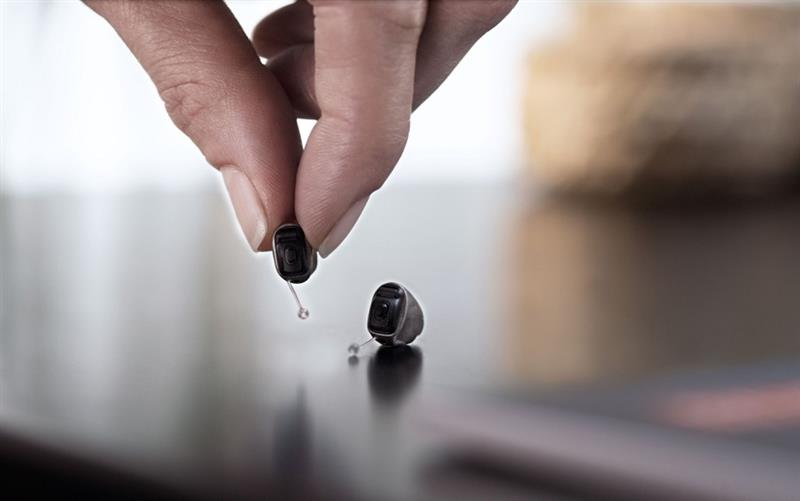
Hearing aids are remarkable devices that significantly improve the quality of life for those with hearing loss. Just like any technology, they require proper care and maintenance to ensure they continue to work effectively. Whether you're a new hearing aid user or a seasoned wearer, following a simple maintenance checklist can prolong the life of your device and keep your hearing experience optimal.
1. Keep Your Hands Clean
Before handling your hearing aids, it's crucial to wash your hands thoroughly. Clean hands prevent dirt, oils, and debris from transferring to your devices, which can negatively affect their performance.
2. Inspect Regularly
Make it a habit to visually inspect your hearing aids for any signs of damage or dirt. Check the microphone openings, tubing, and casing for debris that might block sound or affect functionality.
3. Cleaning Routine
Follow these steps for a basic cleaning routine:
- Gently wipe the exterior of the hearing aids with a soft, dry cloth.
- Use a small brush (often provided by your audiologist) to remove debris from the microphone ports, speaker outlets, and other openings.
- Consider using a wax pick to carefully remove wax buildup from the tubing or speaker.
- Avoid using water, alcohol, or cleaning solutions, as they can damage the sensitive components of the hearing aid.
4. Store Properly
When you're not wearing your hearing aids, store them in their protective case. This prevents them from exposure to dust, moisture, and accidental damage. If your hearing aids have removable batteries, leave the battery compartment open to allow any accumulated moisture to evaporate.
5. Battery Care
If your hearing aids use disposable batteries, consider these battery care tips:
- Keep spare batteries in a cool, dry place.
- Remove the batteries from the hearing aids if you won't be using them for an extended period to prevent battery leakage.
- Only insert new batteries when you're ready to use the hearing aids, as exposing batteries to air activates them.
6. Avoid Extreme Conditions
Hearing aids are sensitive to extreme temperatures, so avoid exposing them to direct sunlight, high heat, or excessive humidity. Remove your hearing aids before activities that involve water, such as swimming or showering.
7. Regular Professional Checkups
Schedule regular appointments with your audiologist for professional cleaning, adjustments, and maintenance. They can perform in-depth cleanings and address any issues that might arise.
8. Handle Batteries with Care
When changing the batteries, ensure you do so over a soft surface, like a table or a towel, to prevent them from falling and potentially getting lost or damaged.
9. Backup Supplies
Keep spare parts and accessories on hand, such as extra tubing or ear tips, in case you need to replace them.
10. Educate Yourself
Familiarize yourself with your hearing aid's user manual. It contains valuable information on maintenance, troubleshooting, and basic care instructions specific to your device.
11. Use a dry cloth to clean your hearing aids.
Moisture is the number one enemy of hearing aids, as it is with the majority of small electronic devices. The amount of moisture in the air is sufficient to do hidden harm to your hearing aids' internal components. Don't forget to wipe off any moisture with a dry cloth at least once a day.
12. Examine the hearing aid battery.
Your hearing aids will probably outlive the battery it comes with, thus batteries can be changed. To make sure the battery is operating at its best, test it every day. The capacity to offer the best hearing correction may suffer if it isn't.
13. Make sure you turned them off twice.
Leaving your hearing aids on when not wearing them is a battery drain. Verify again that you switched them off at night. This also applies to any other times during the day when you might have left them out, but it's an excellent practice to get into right before bed.
14. Put them away at night.
Every night, store your hearing aids in a dry, cold location. The best option would be a dry-aid kit, but if not, the case your hearing aid arrived in is also OK. Anyhow, it's critical to minimize moisture buildup wherever feasible.
15. Overnight, leave the battery compartment open.
You may assist keep moisture away by opening the battery box on your hearing aids when you take them out at night. Your hearing aids' battery and internal circuitry are preserved as a result, ensuring that they continue to work at their best over time. Even though it won't hurt you if you forget, it's an excellent habit to develop to keep your hearing aids effective.
It's ideal to keep yourself as educated with your hearing aids and a new breakthrough in the technology. Ask your query via Book an Appointment today. For more information visit https://hearing.careinc.ca or you can call us today at (403)605-6300